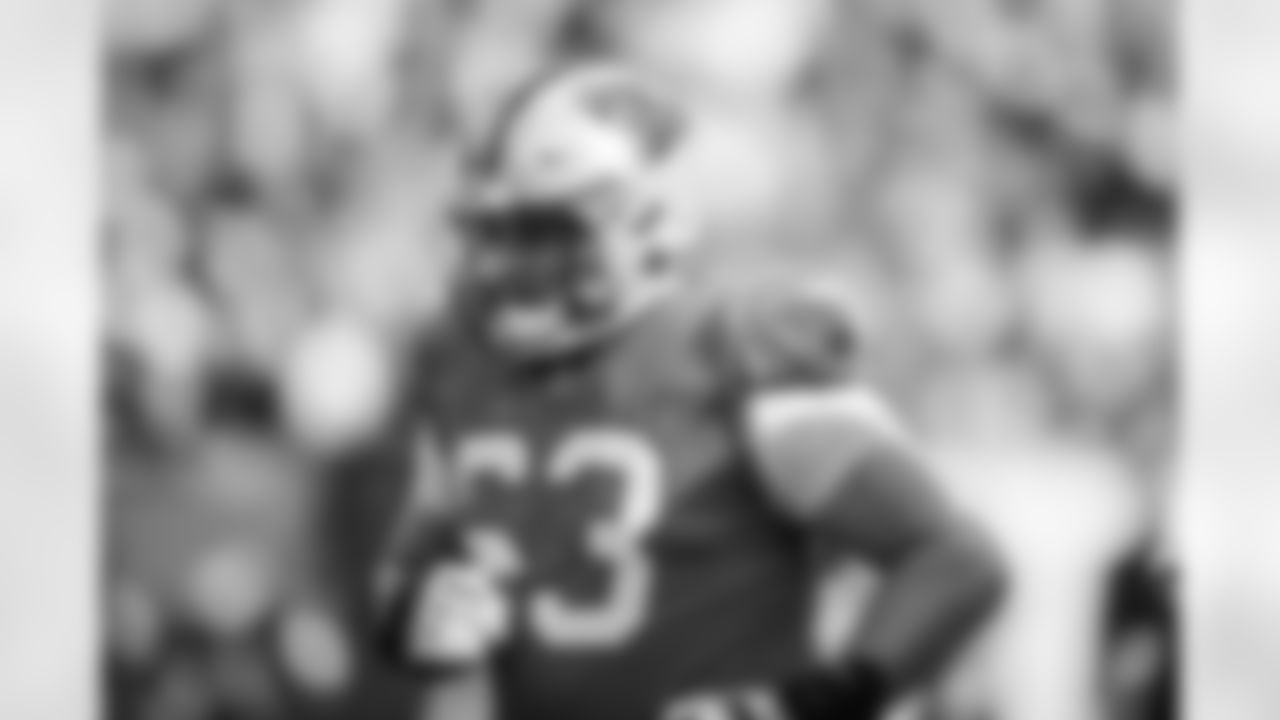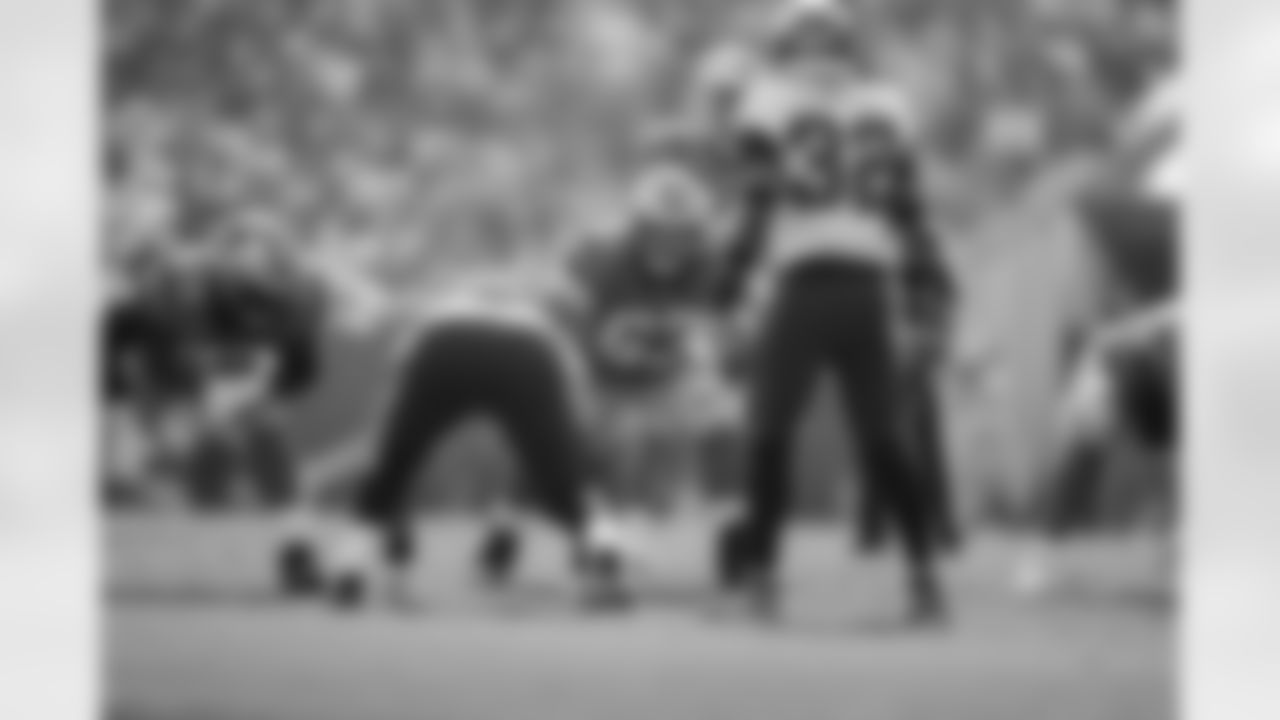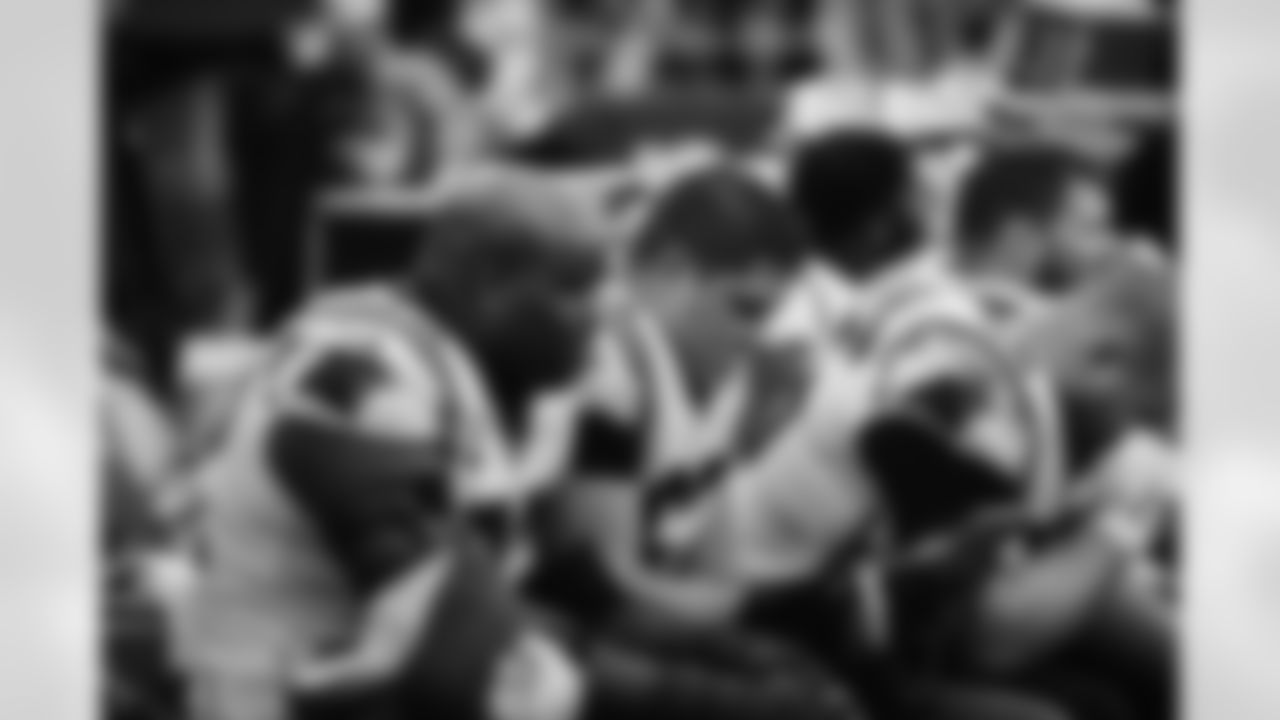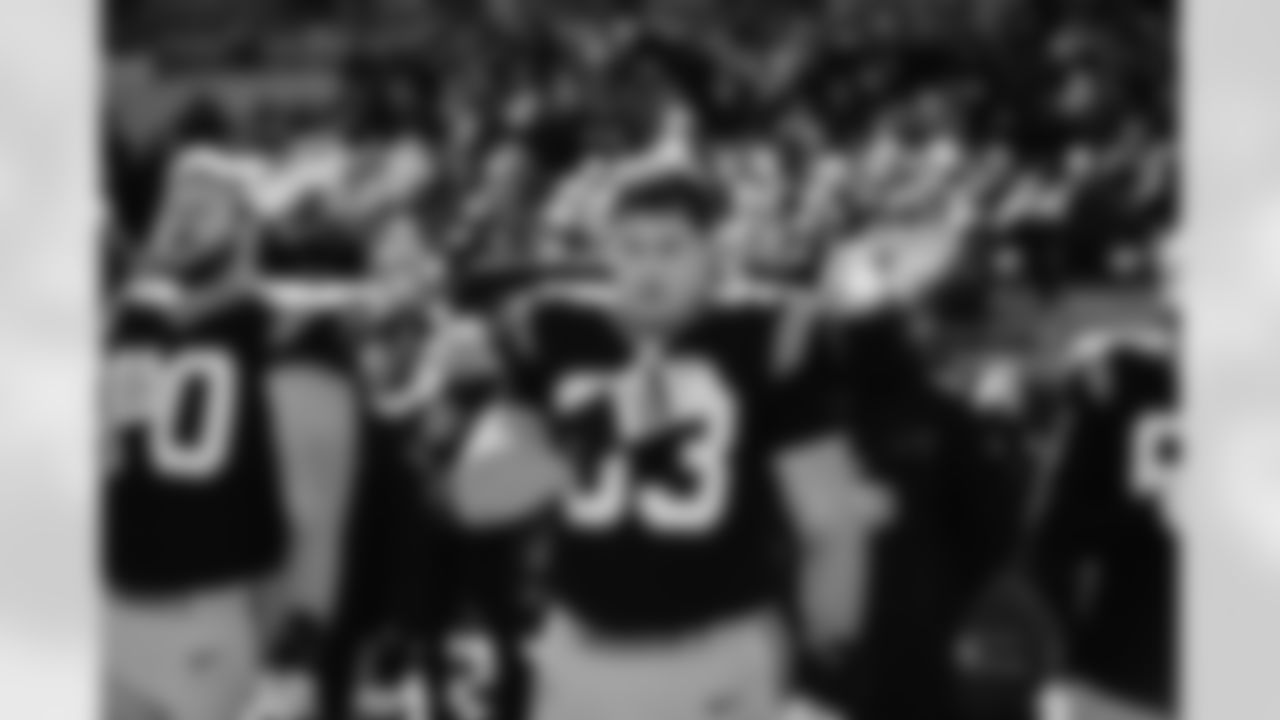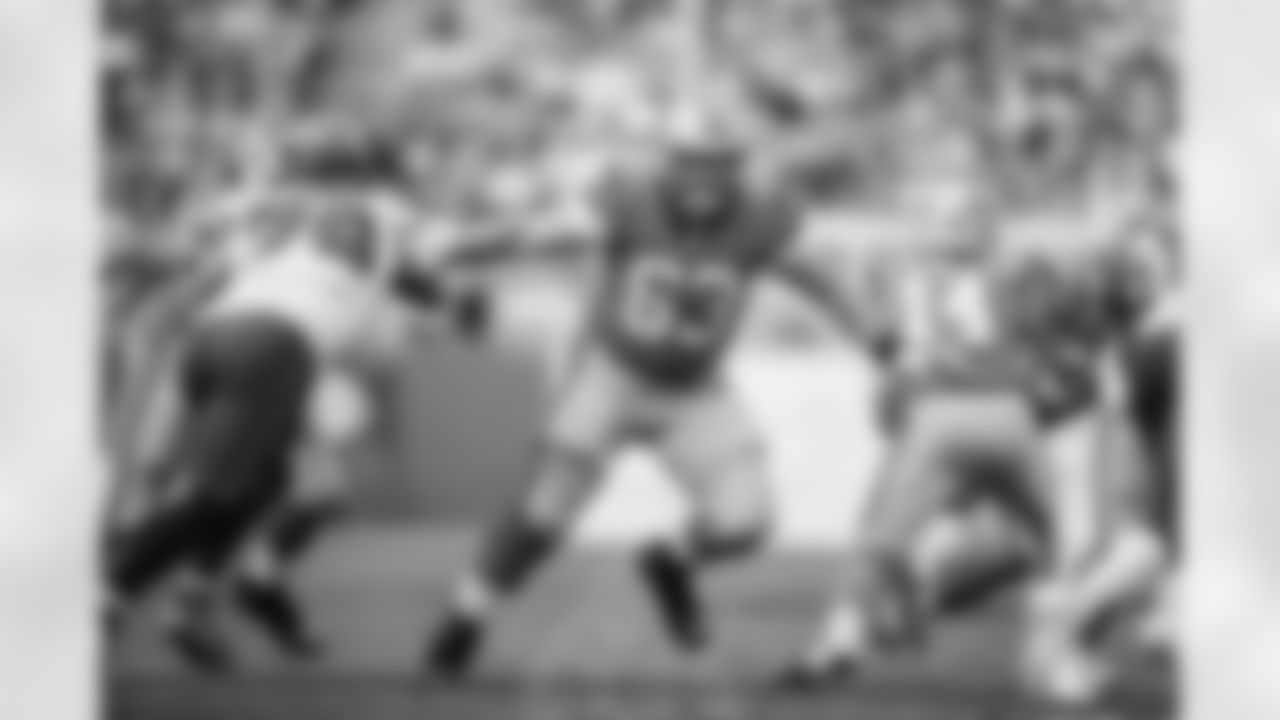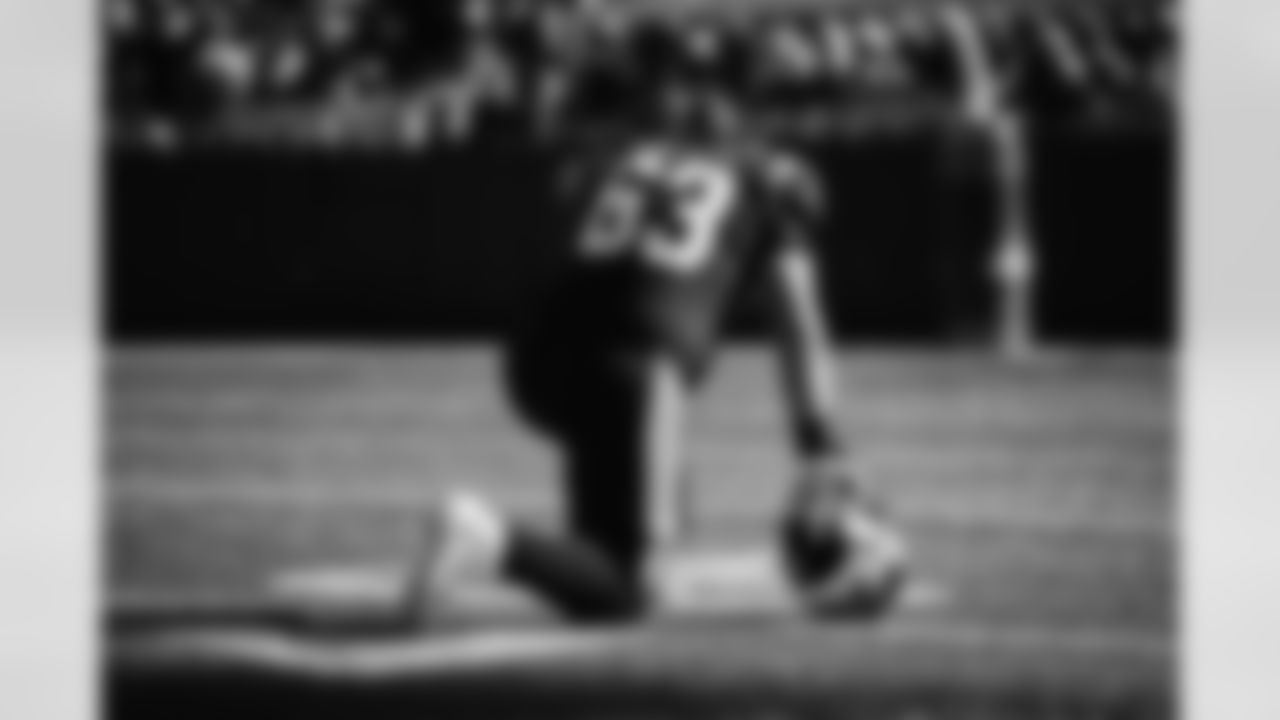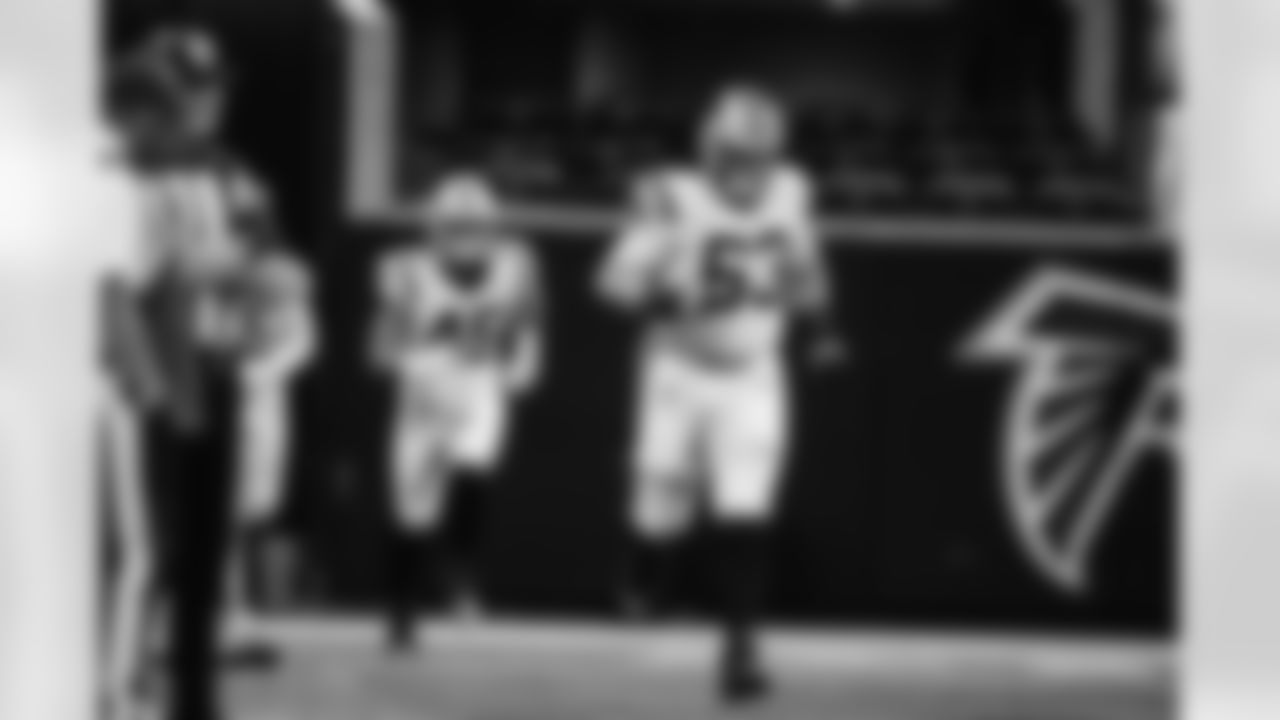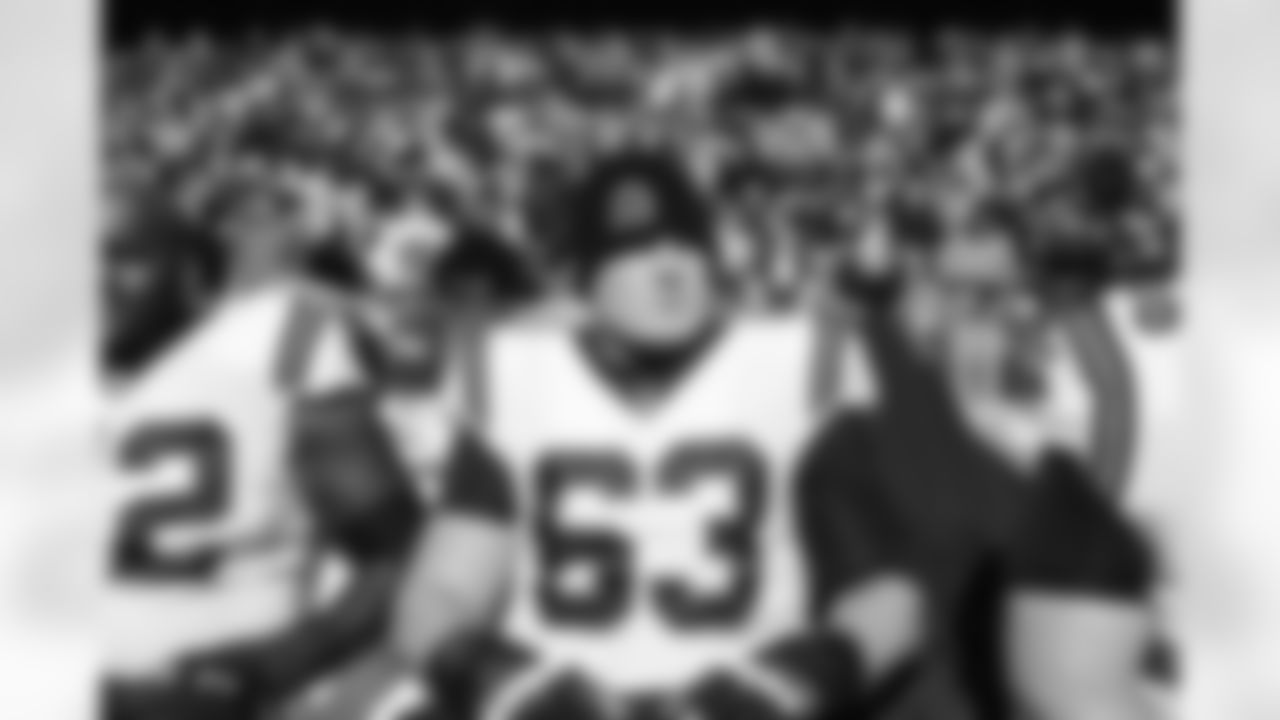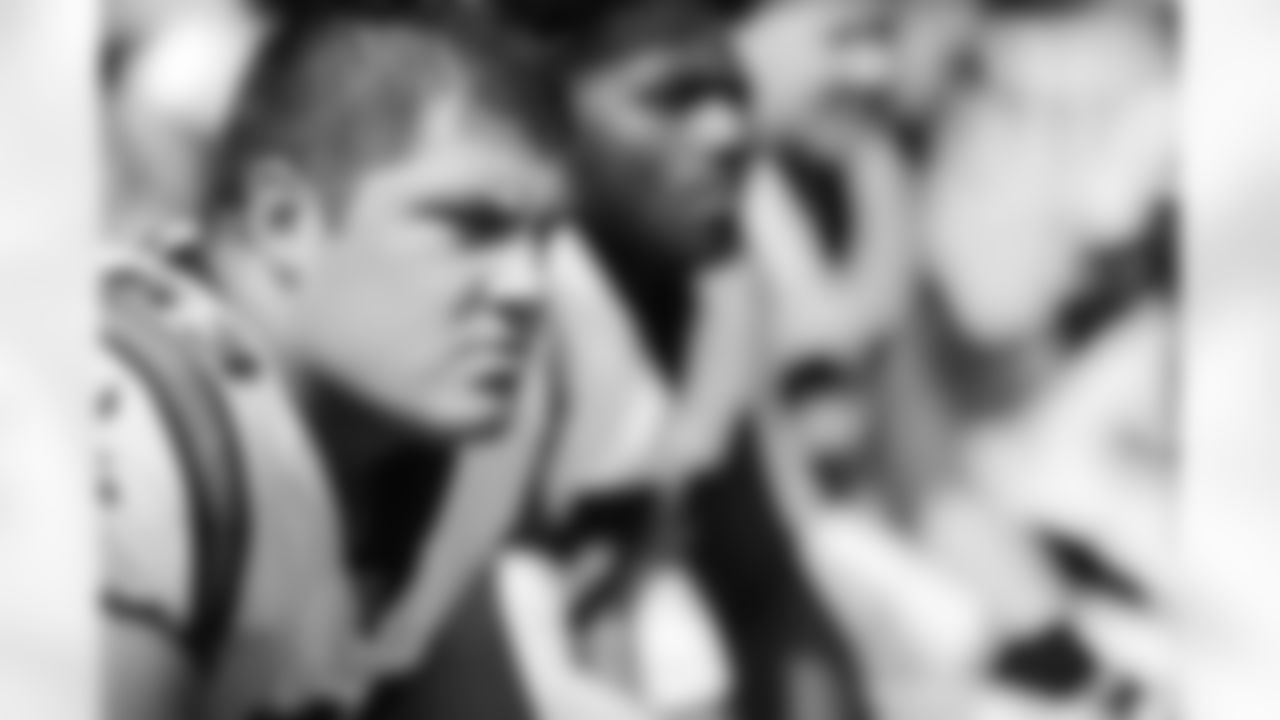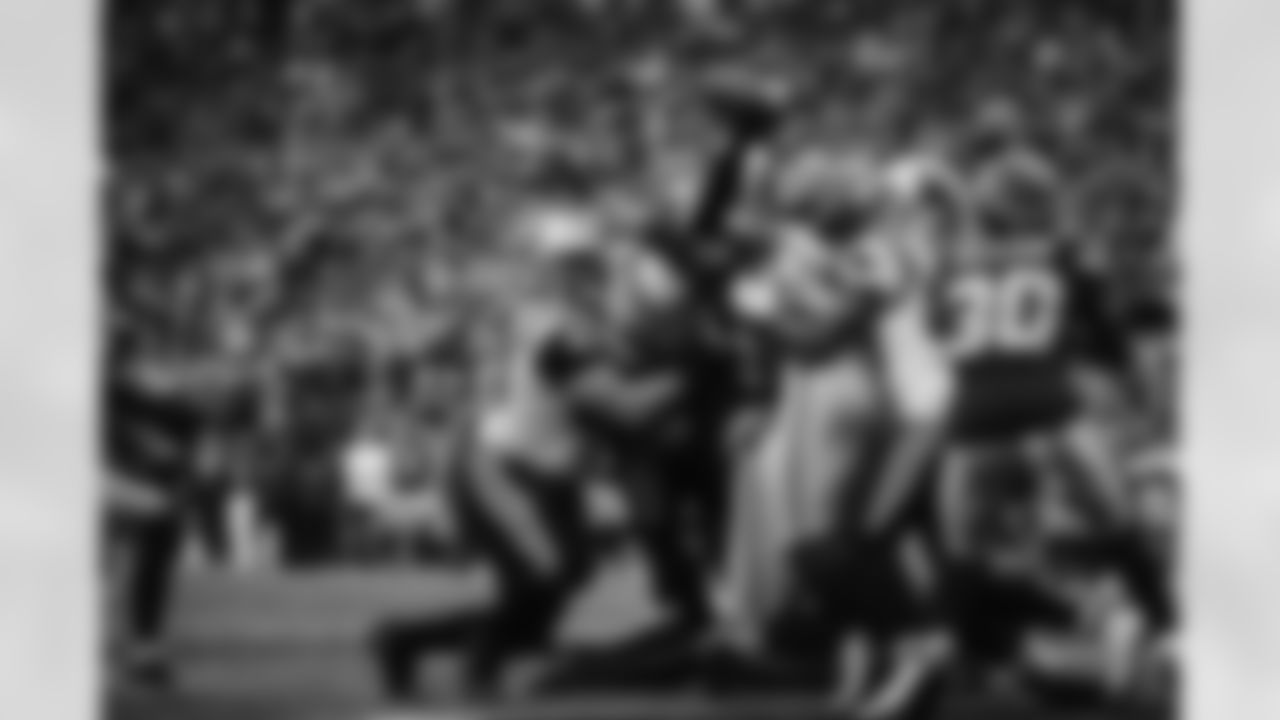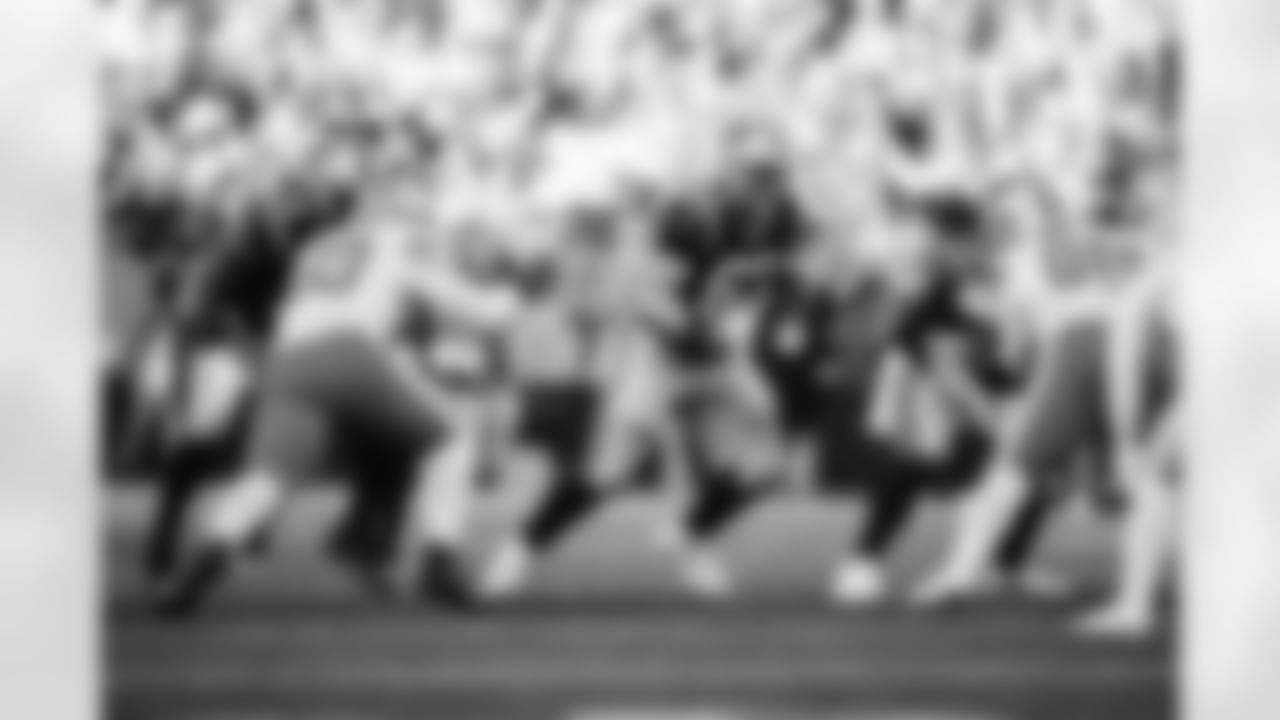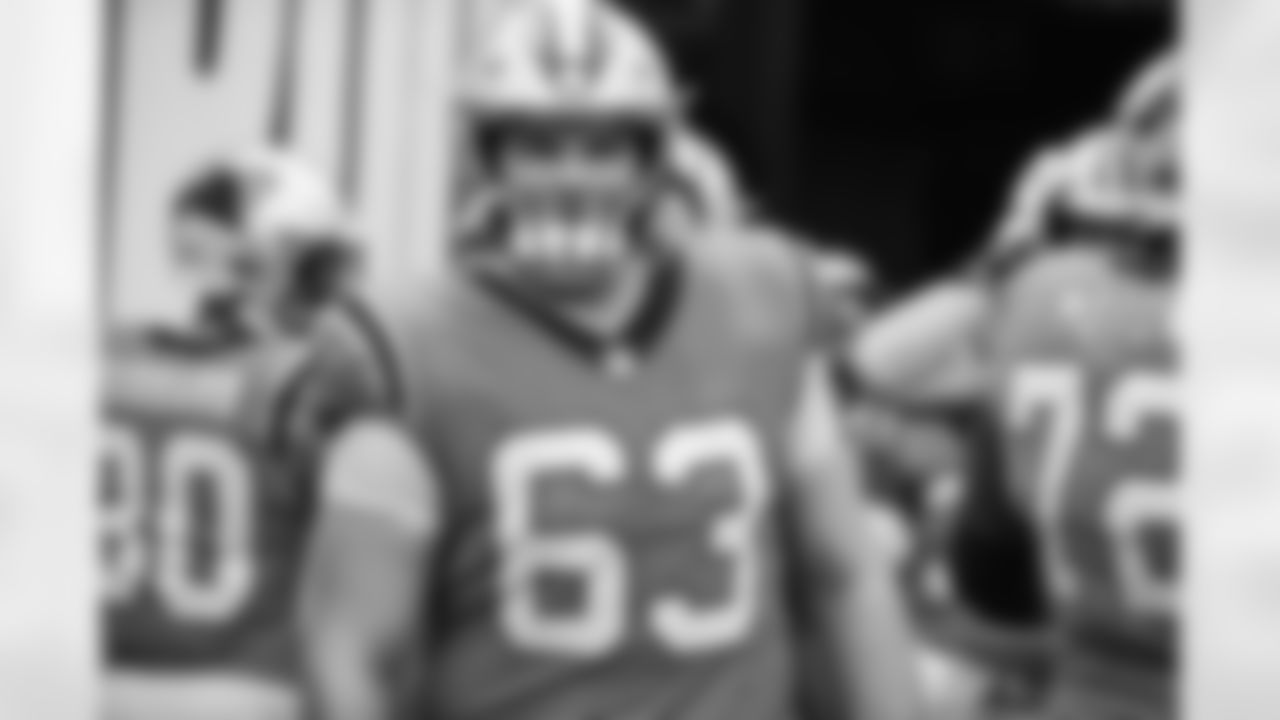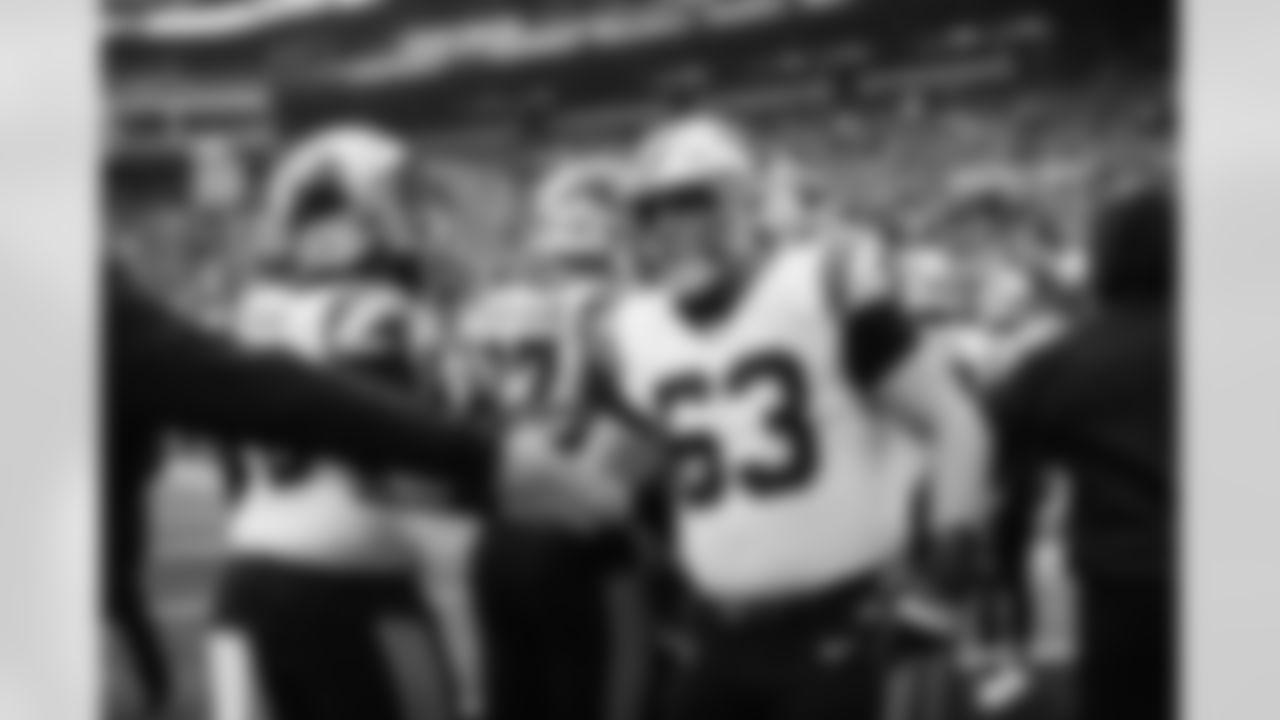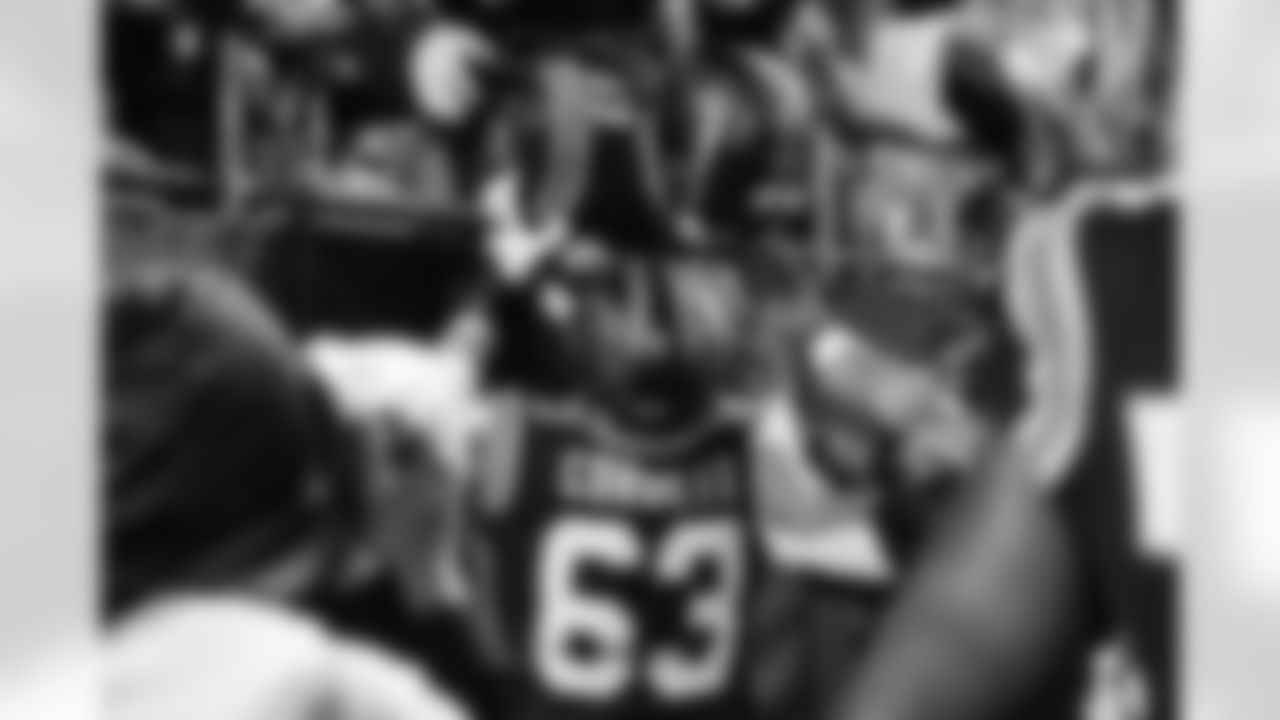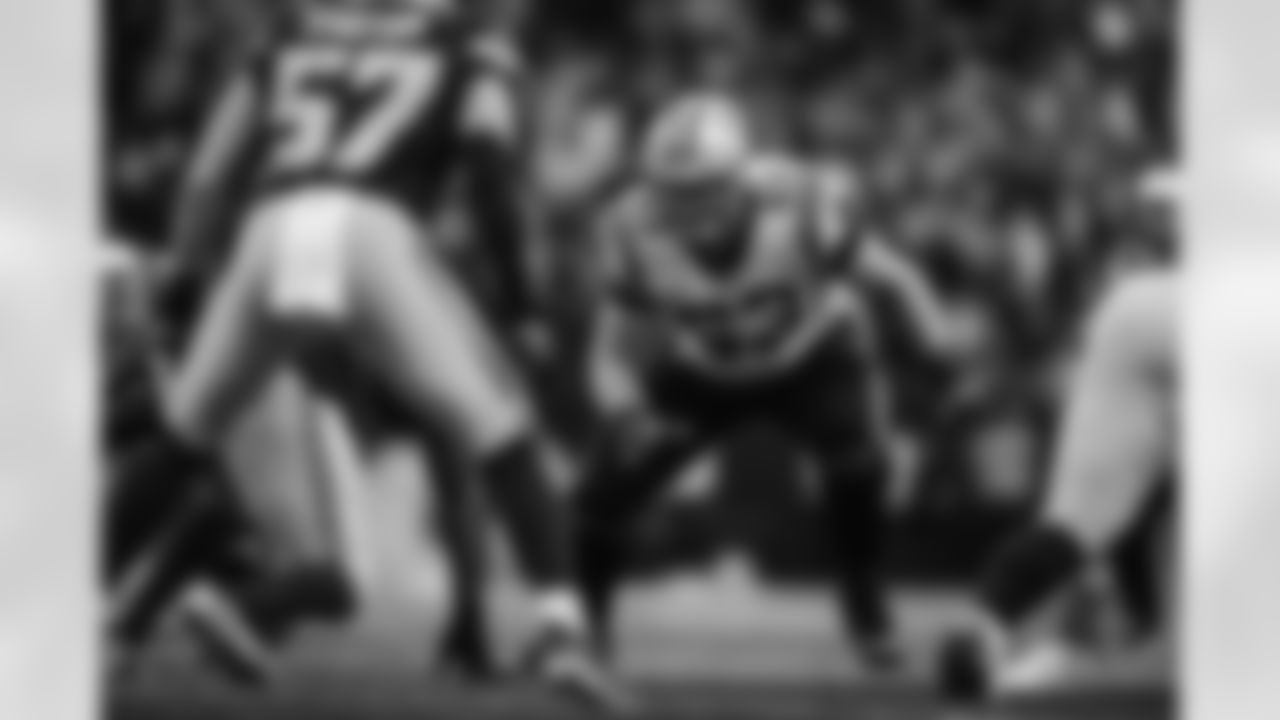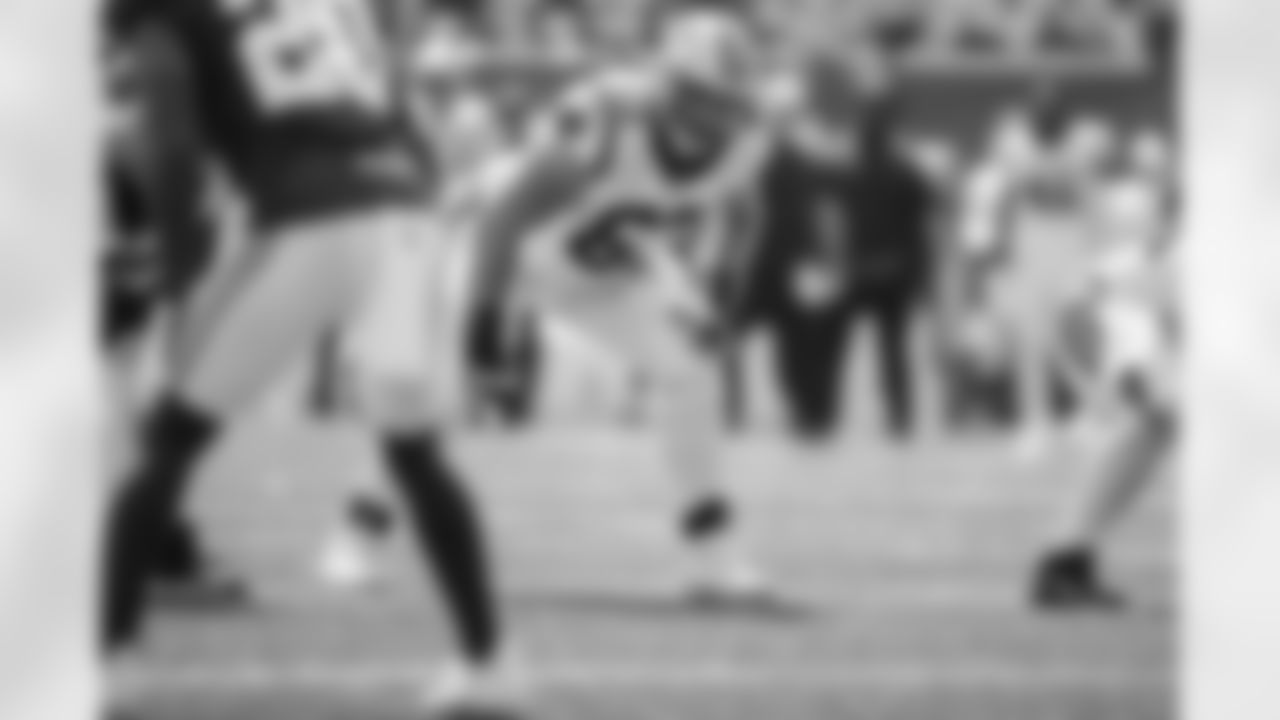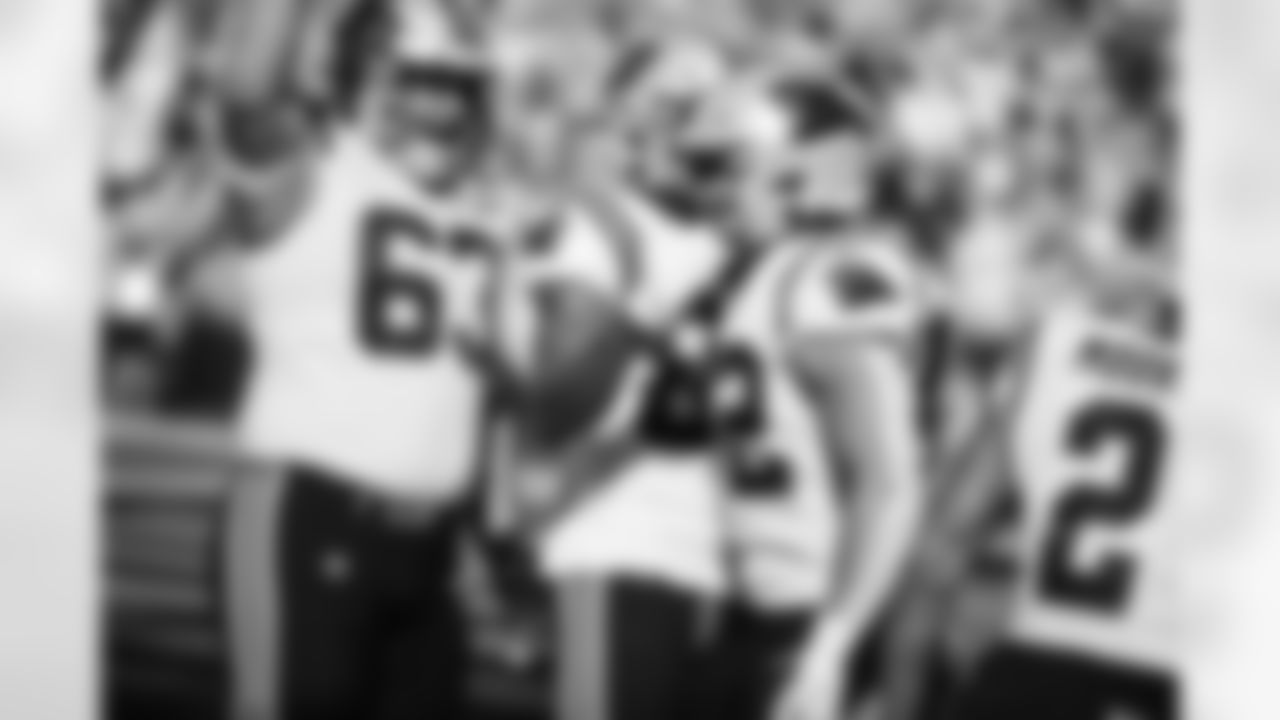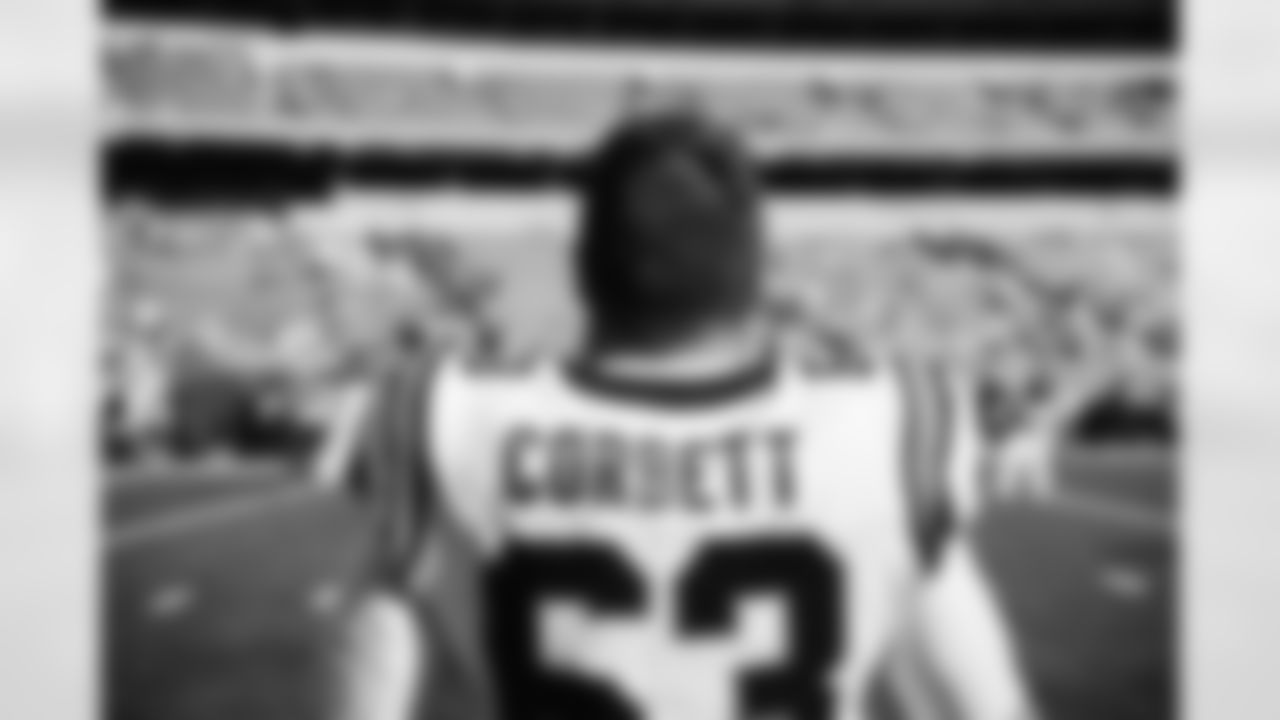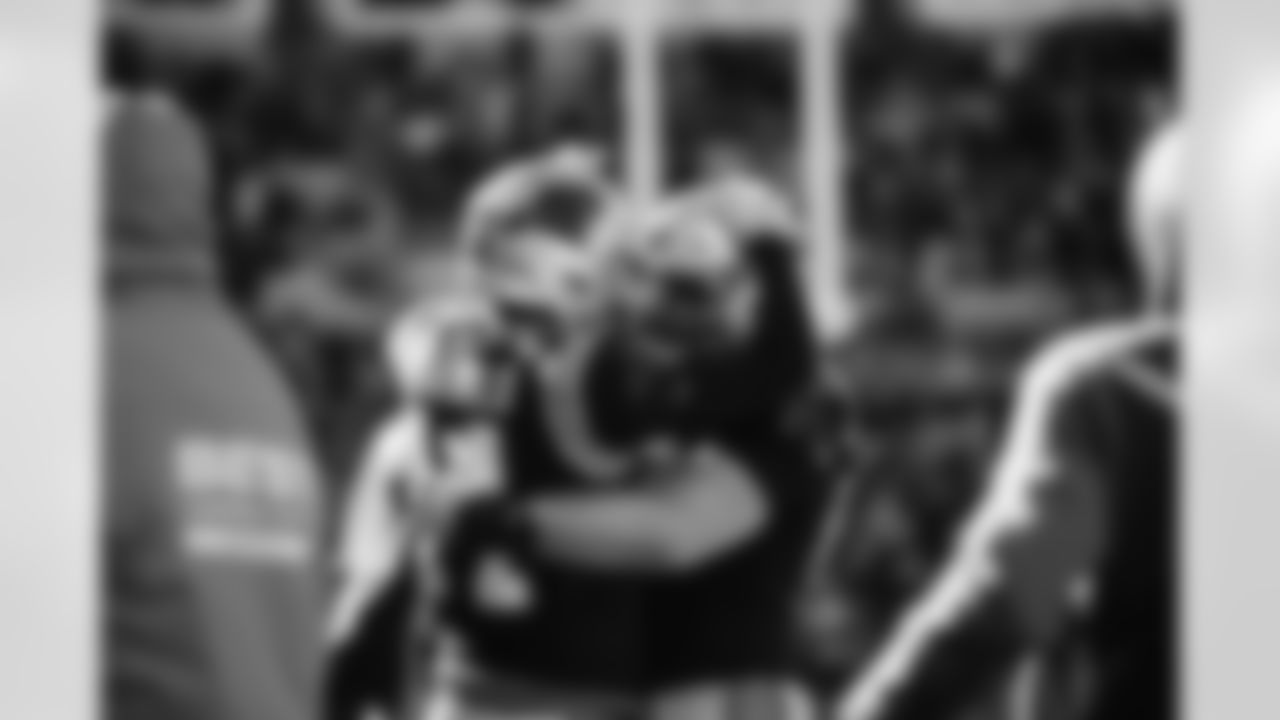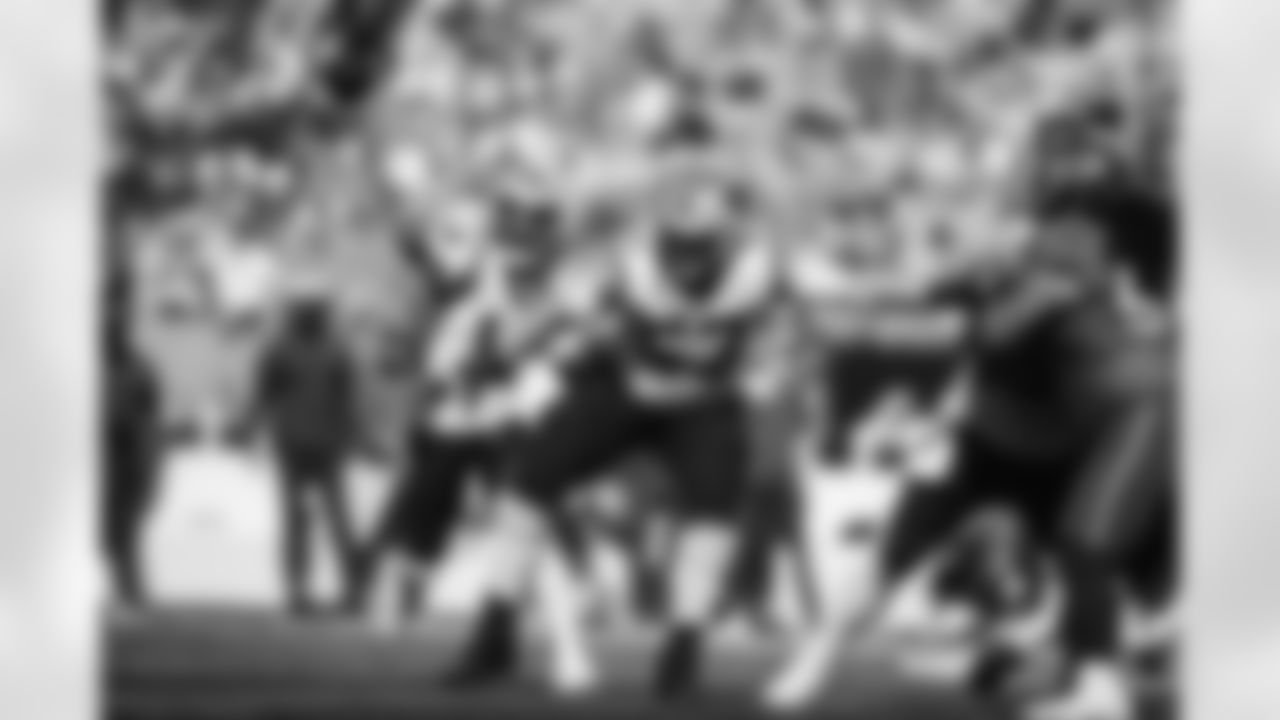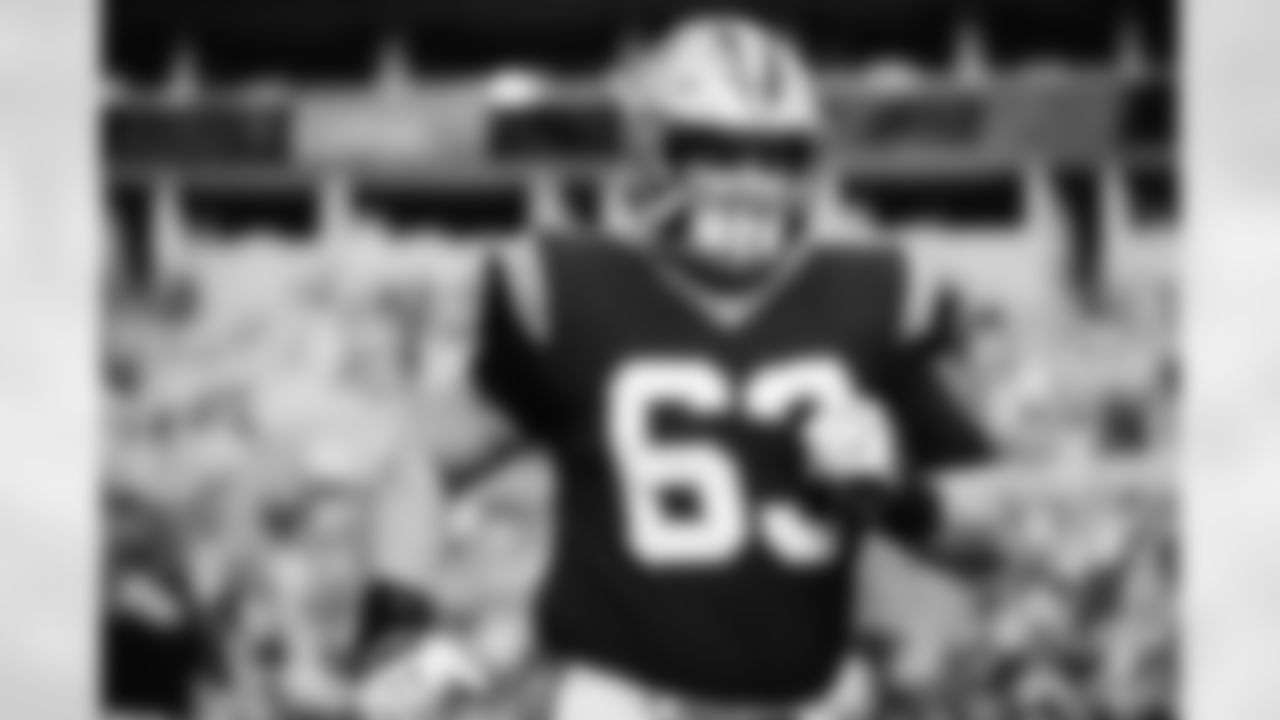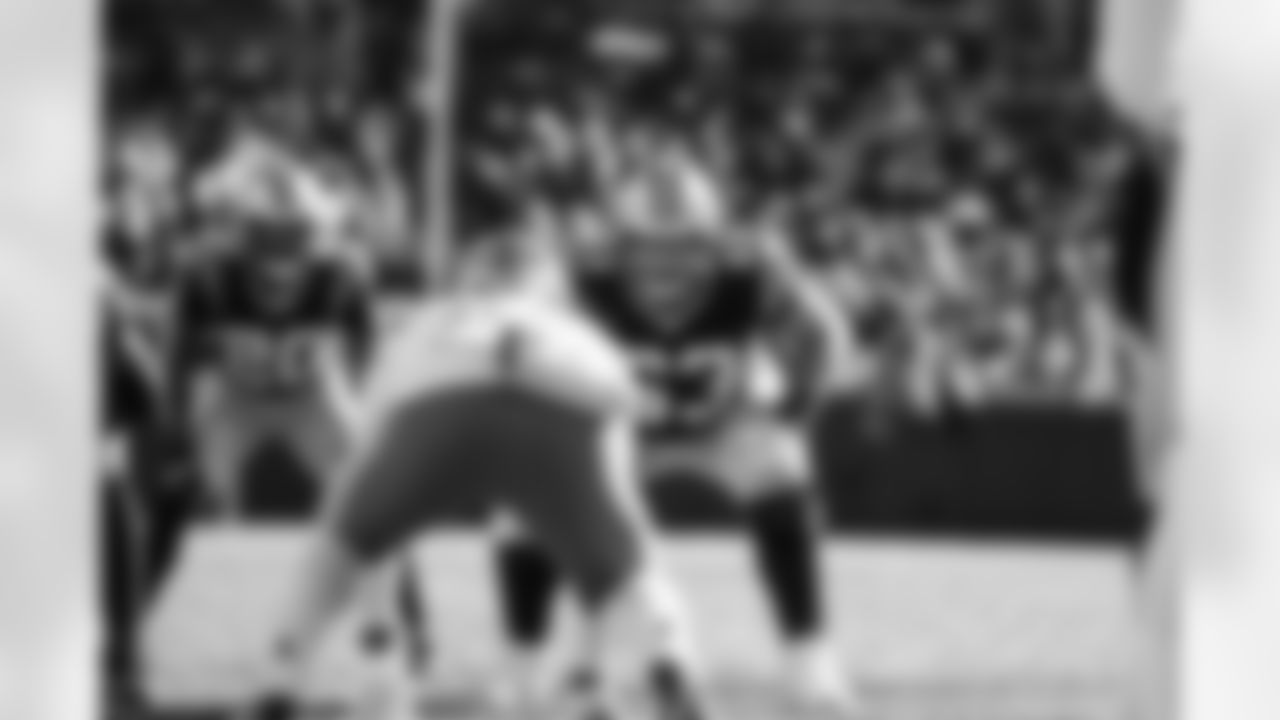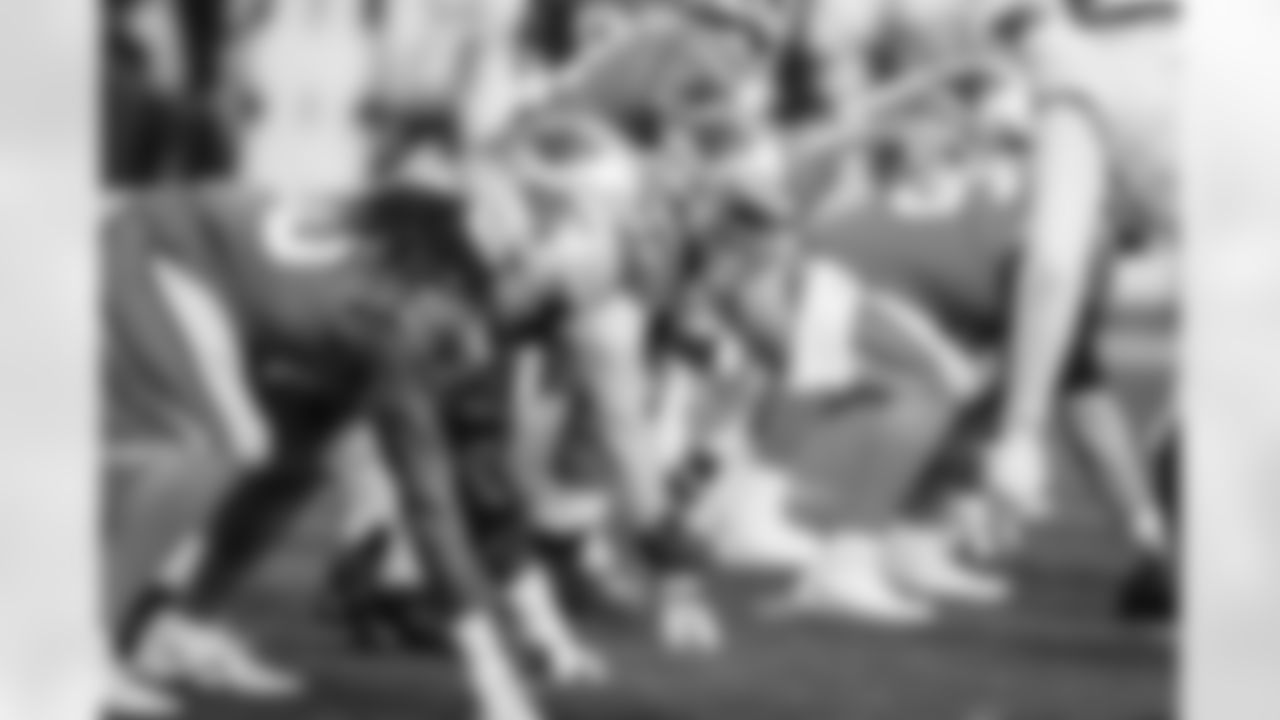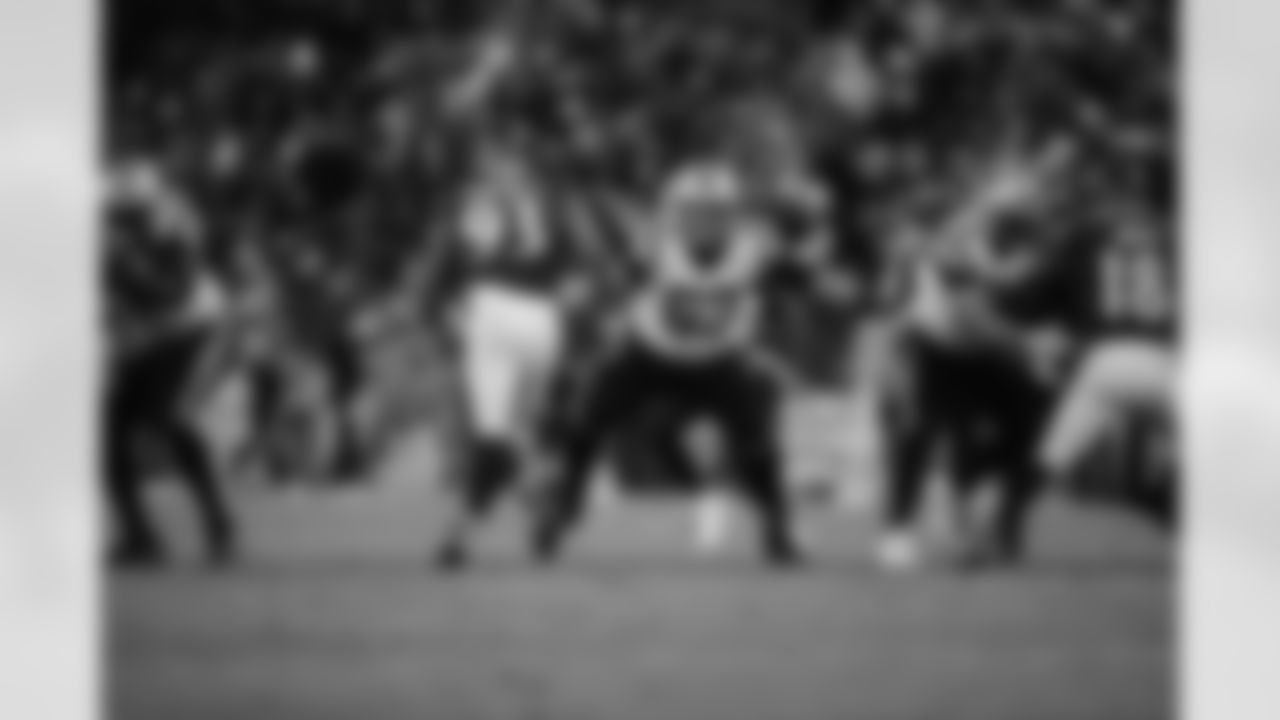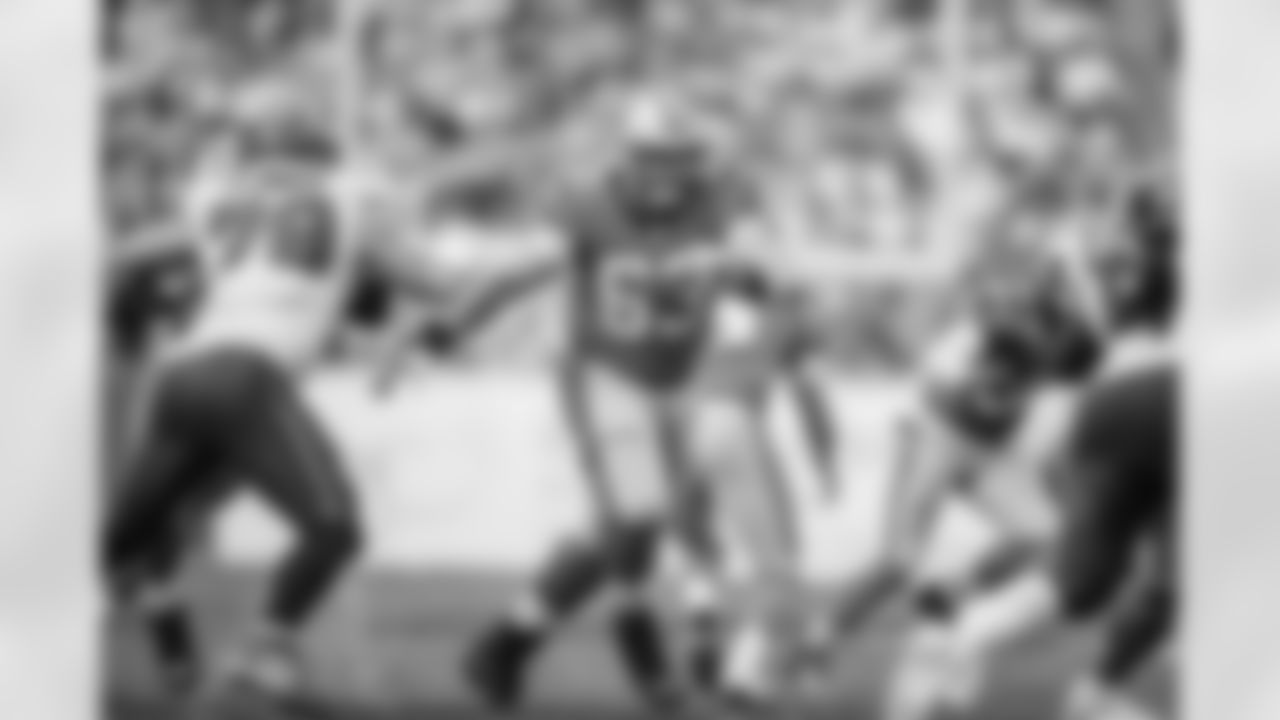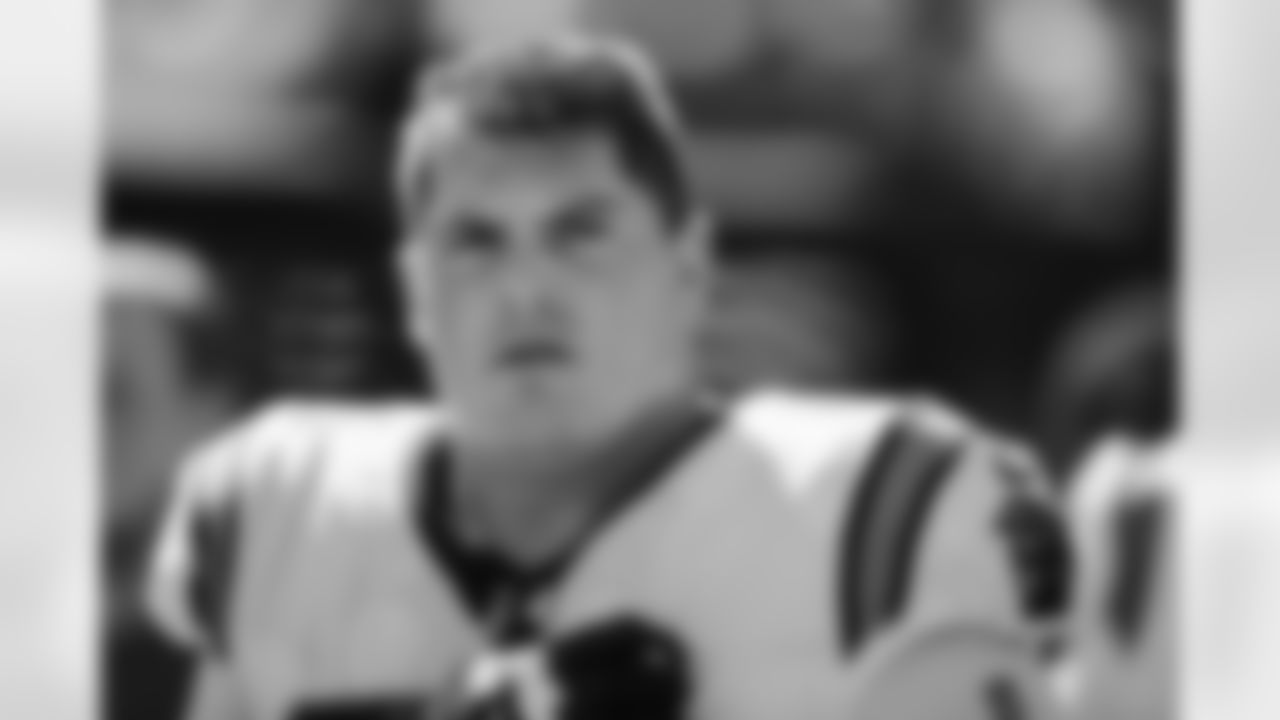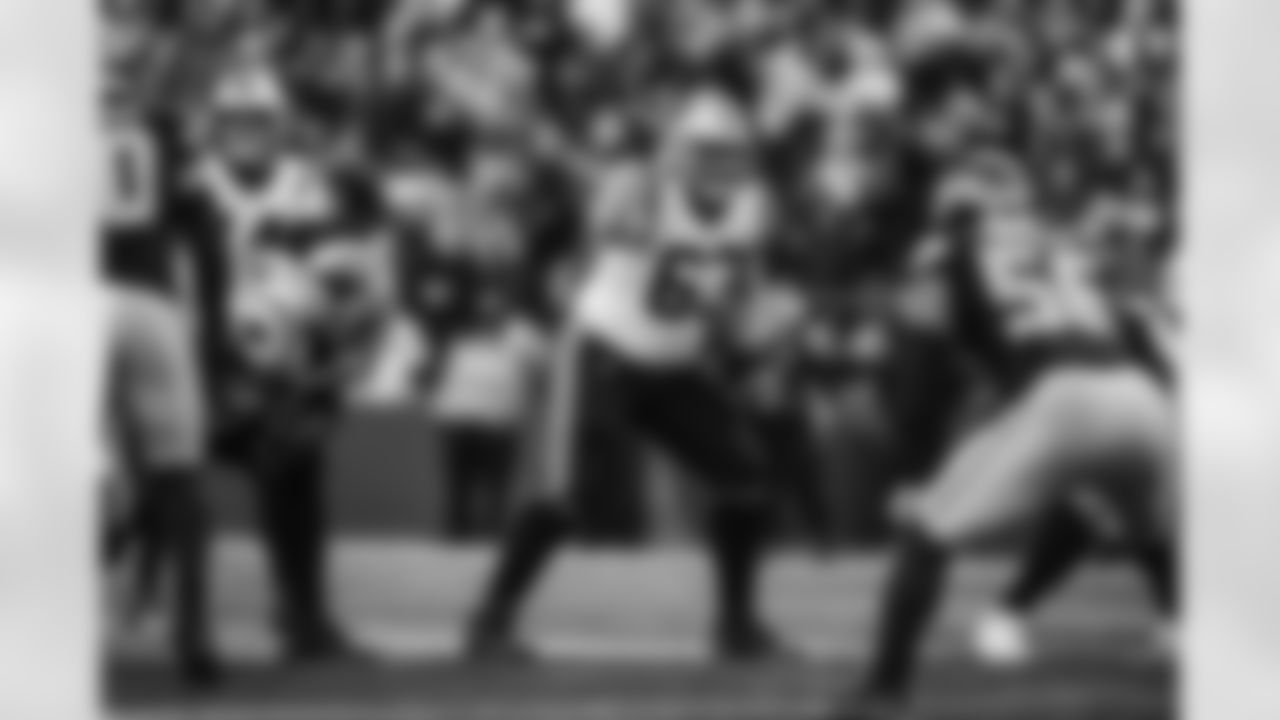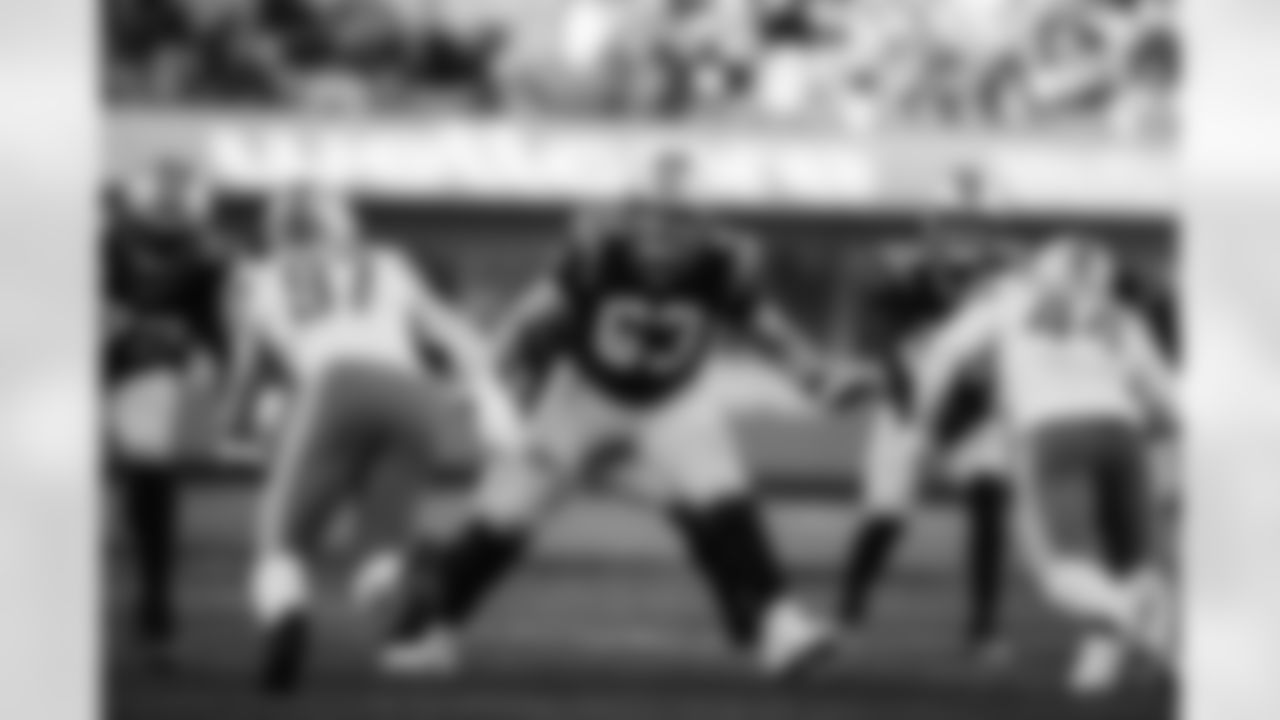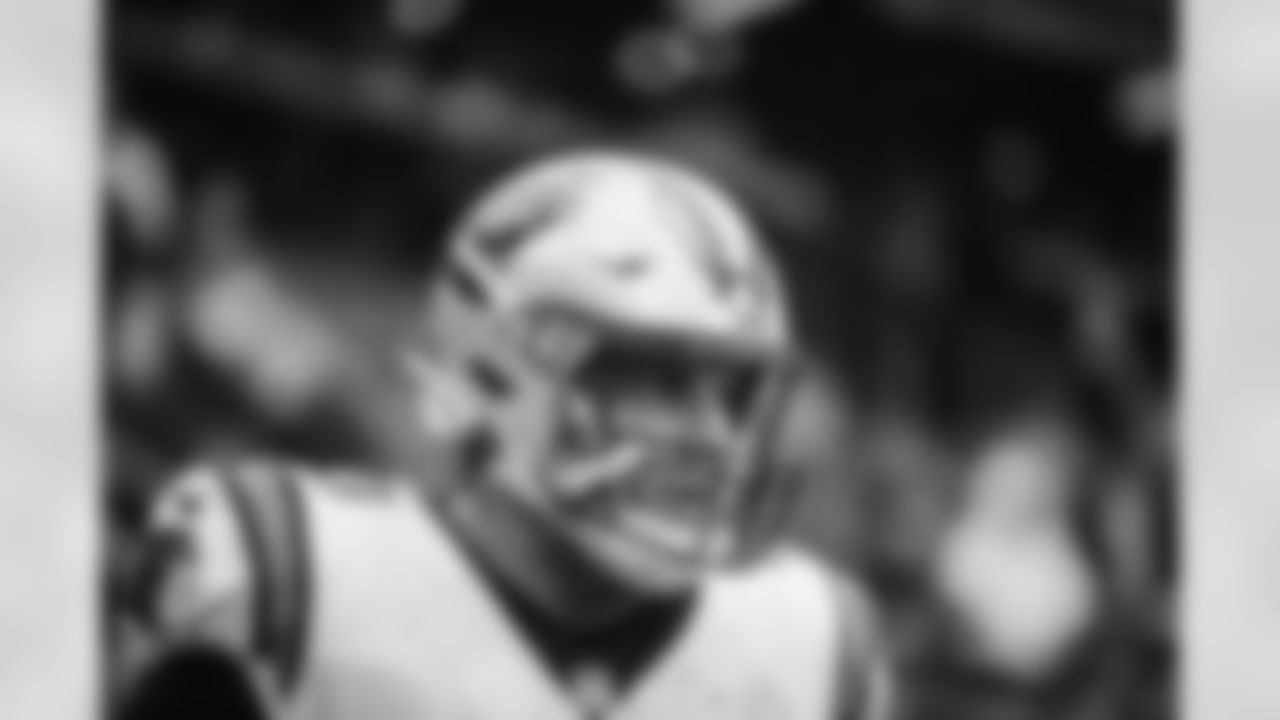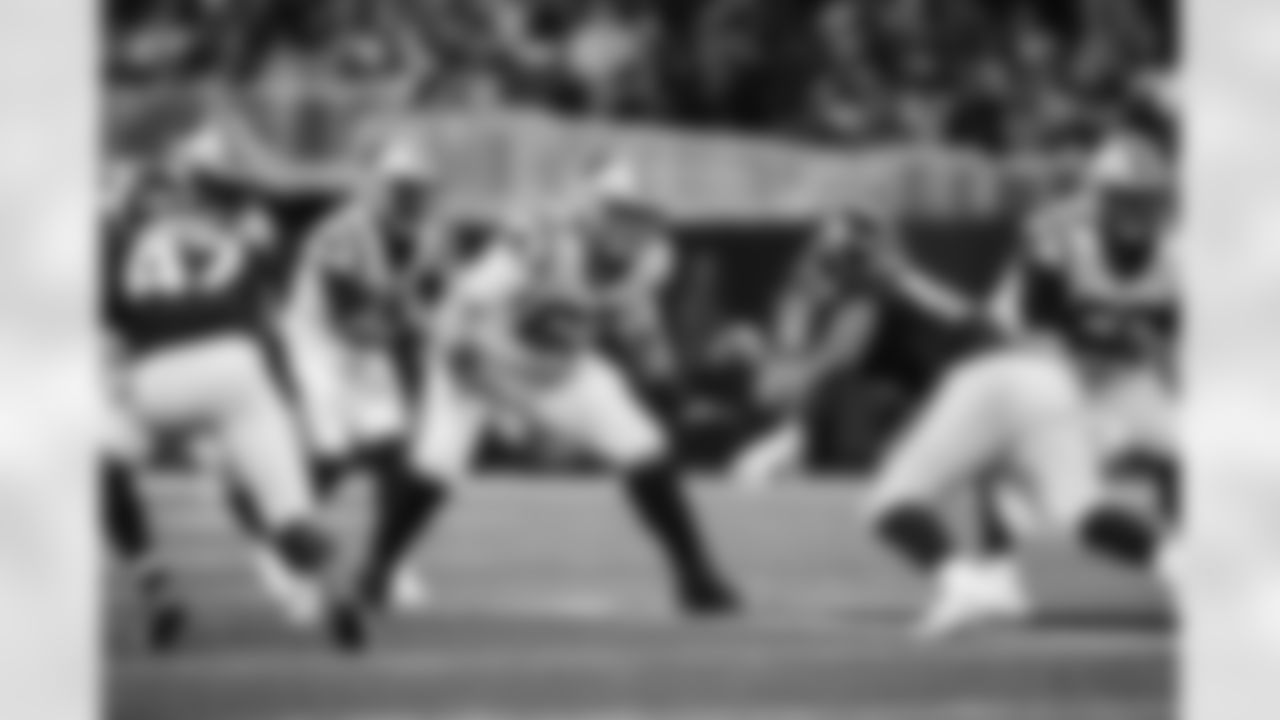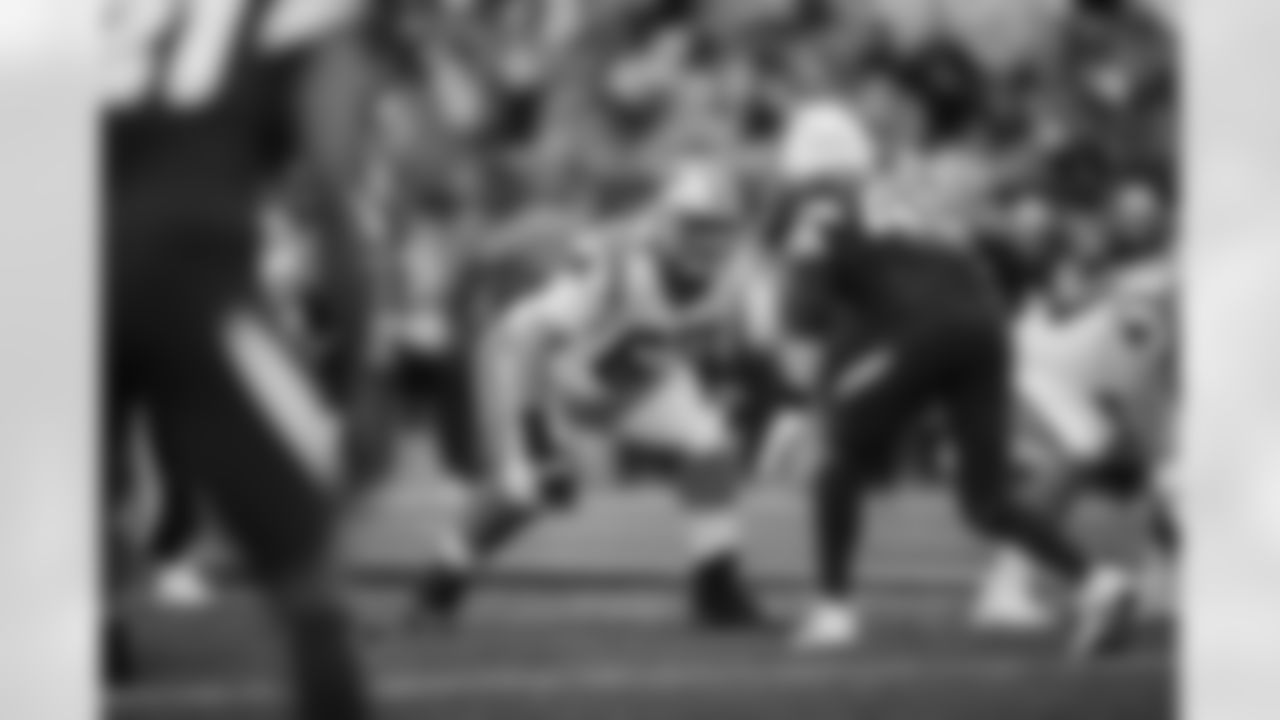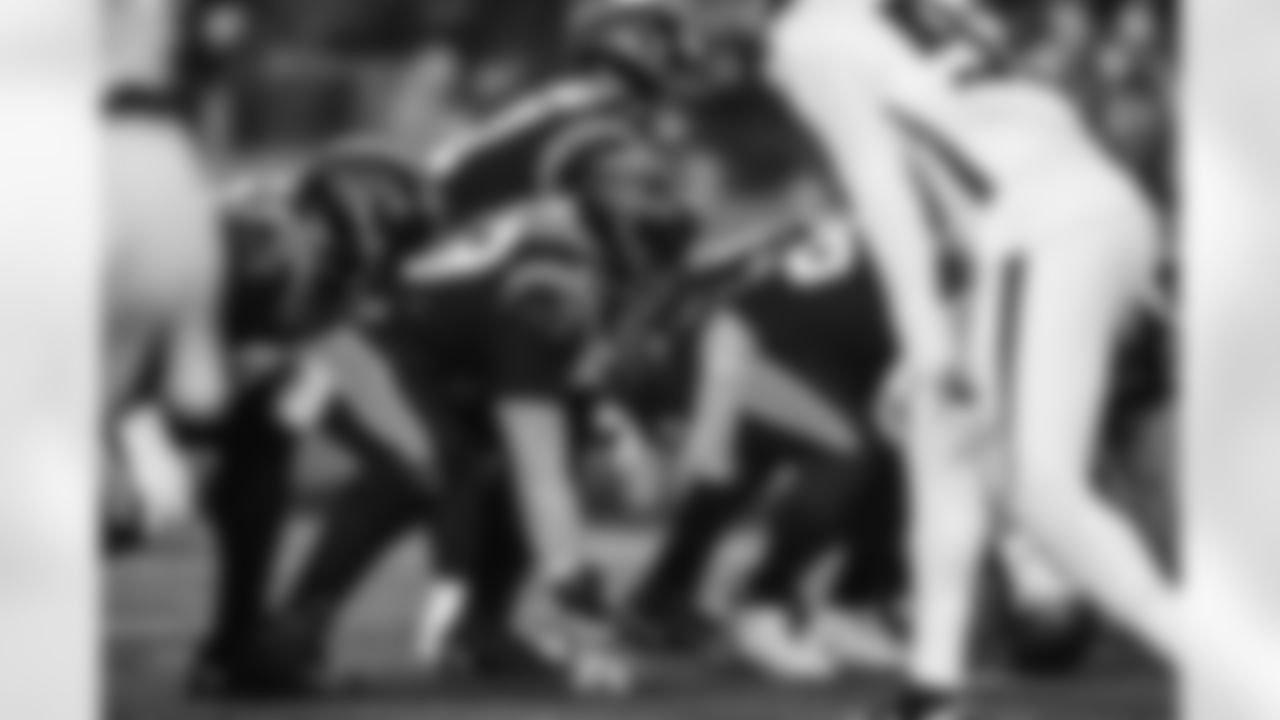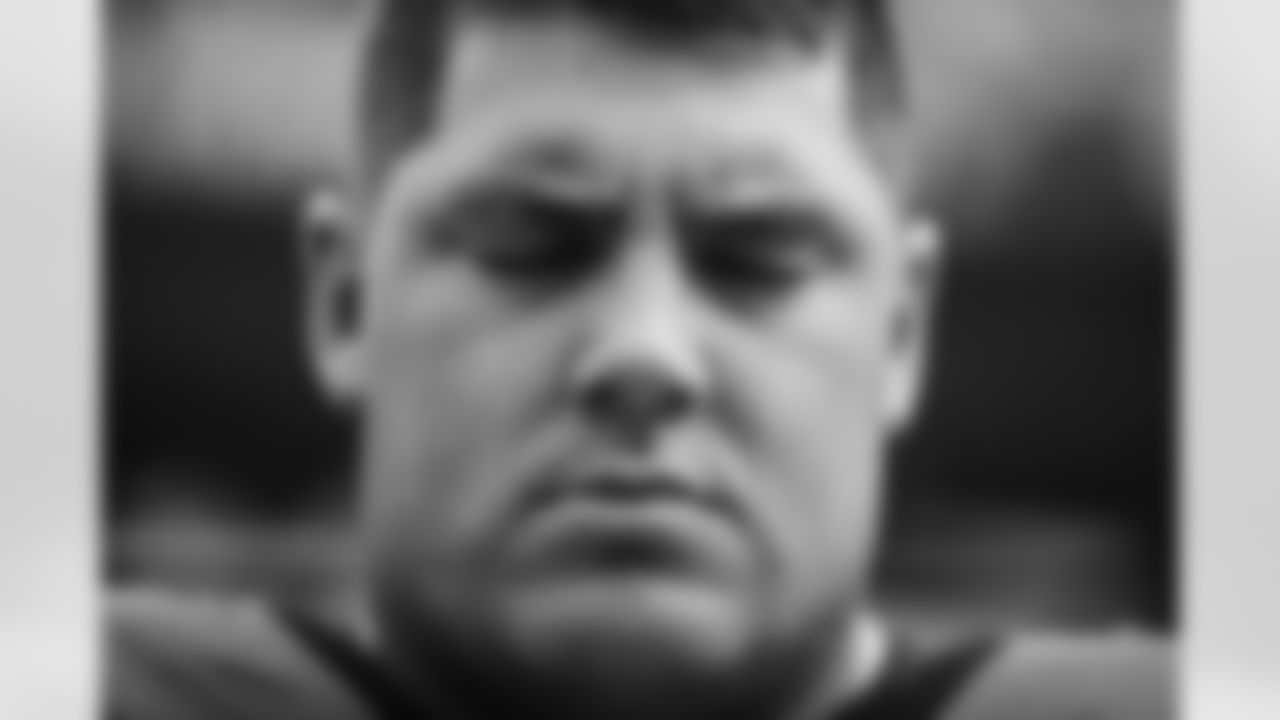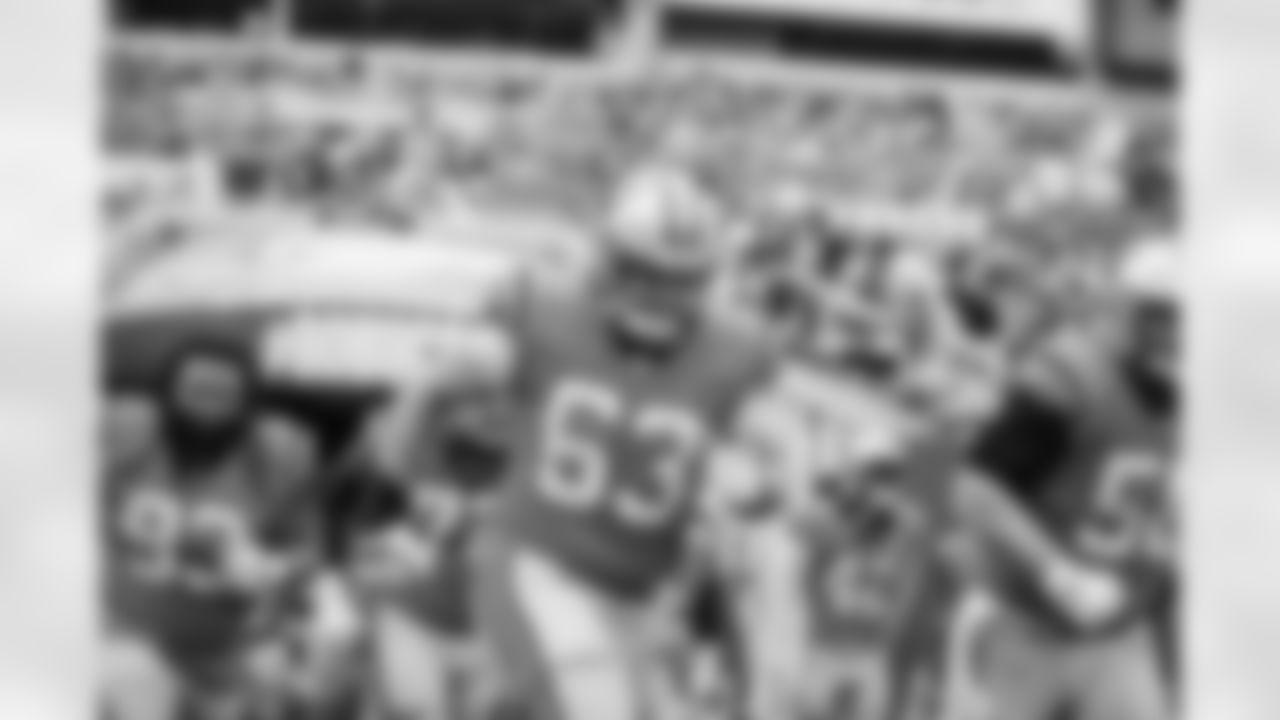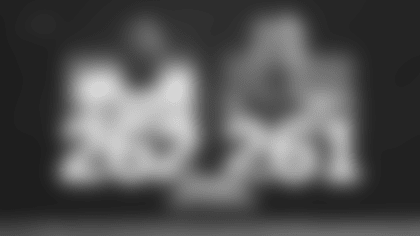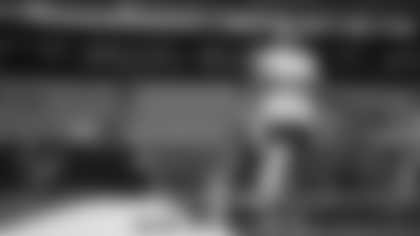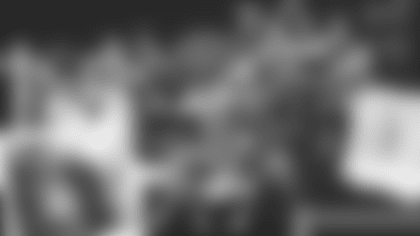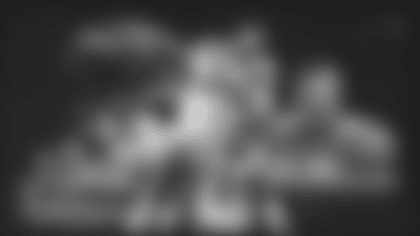Panthers right guard Austin Corbett suffered a torn ACL on Jan. 8 in the regular season finale against the Saints. He has agreed to take us inside the rehab process, explaining his perspective on what coming back from the injury entails from a physical and an emotional standpoint and what the months of work to return actually look like as they're happening. This is his story, as it unfolds. Read the first installment of the series here.
CHARLOTTE — To become a professional athlete, "more" has to be kind of a guiding principle. More weight on the bar. More reps. More time spent studying film. More food on the plate. More of everything.
So being in a position where all you can really do is less is jarring, the kind of thing that will mess with you, the kind of thing that makes you sometimes wonder who you are.
Or, at least, whose pants you're wearing.
For Panthers right guard Austin Corbett, the second month of his rehab after suffering a torn ACL in last season's finale has been a journey unto itself. It's real now. The pain from the surgery has subsided, but he knows he's still going to be dependent on others for a bit longer. This is the non-weight-bearing month, and others are doing a great job of bearing it. But there are moments when it hits him how long of a process this is going to be and how different he already is in his own head and in his wife's eyes.
"You can tell, just that that loss of mass," Corbett laughed when asked how he's changed in the last month. "The real demoralizing one was getting ready for church the other day and putting my pants on and Madison telling me, 'Wow, I've never seen those so baggy on you.'
"Just crushing. But it'll come back."

Since he can't even walk far without crutches yet, he can't do the kind of exercise to keep the muscle mass where it has to be to be an NFL offensive lineman. As diet plans go, limited mobility and the ensuing muscle atrophy is a pretty reliable one.
So at the moment, he's down at least 10 pounds since his surgery on Jan. 18. He was listed at 305 pounds last season, so that's not a huge deficit, but it's noticeable. It's going to take time, food, and exercise to get that back. Time, he's got plenty of. Exercise is kind of tricky right now.
When you hear a phrase like "six weeks, non-weight-bearing," it sounds like an abstract concept, especially in the commodified context of athletes coming back from injury. But when that translates into callouses on your hands from dragging your own weight around with crutches or pants that don't fit right anymore, that phrase begins to bear a little more weight.
It changes everything, including the way he eats.
"I'm not burning the same intensive calories that I did," he said. "So I'm trying to just pay attention to what I'm eating. So I don't need to eat as many calories as I do during the season. And so just being more cognizant of that and just the quantity.
"And it's tough because you're still so tired because your body is just working nonstop to heal. So you are burning calories in that sense, and tired and fatigued and need to eat to be able to help yourself out."
Because even though there are days of this second month when it looks like Corbett's not doing all that much, it's still a grind.
One day in late February, he sat in a pool in the athletic training room, doing the gentlest of underwater exercises. All you could see over the surface was his head and his wrist, which he was using to hold up his phone. Later that day, a small ankle weight was wrapped around his left leg. His phone remained right next to him, never leaving Corbett far away from the small dopamine rush of a social media notification or the urge to add an entry to his notes app about another facet of this process he doesn't want to forget.

So while the torn anterior cruciate ligament that was repaired by using part of his patella tendon is still healing but largely as strong as it's going to be, the surgery itself is no longer acutely painful. The boredom can be. So he's spending more time on social media than he ever has, trying to fill a lot of menial hours with the random thoughts that pop into his head.
"Oh, 100 percent, that's the biggest part," Corbett said. "You're laying there, and you're doing these exercises. But thankfully, you have these other guys to help. Just talking. Take your mind off the nonsense, and it'll get better. You're staying on one table for multiple hours at a time. So doing that and why I started just asking random questions on social media. I'm just like, give me something to do. Give me some interaction."
Of course, with his head sticking out of the pool or chilling on a training-room table, Corbett would be kind of like the duck that looks so calm from above, but is paddling furiously under the surface. There's stuff happening. It's just not much to look at.
Even a family vacation to Hawaii this week (though he's still doing daily physical therapy while there at an NFLPA leadership conference) is now viewed as a step in the process, as he forces himself to learn to slow down.
"I'm able to start walking some short distances," he said. "If I know it'll be a longer trek, I'll bring crutches to assist with walking, or even crutch normal just to be faster and keep up with kids.
"All the walking in the pool and the lazy river has been a huge help. Built-in rehab work."

Of course, when he's home, he's spending five days a week inside the stadium, putting in long hours that don't necessarily look like hard work. Mondays, Wednesdays, and Fridays are the heavy days. Tuesdays and Thursdays are for active recovery. But even the heavy days don't necessarily look like what you'd expect a football player to be calling a heavy day this time of year. Part of that's because of the technology they're using.
He can't push a lot of weight around for a while. But he can fire that muscle. Panthers head athletic trainer Kevin King explained that a key piece is a machine they refer to as the BFR. The blood-flow restriction device acts like a large blood pressure cuff. It squeezes areas to keep the blood out of a particular area. Then when it is released, and the blood rushes back in, it creates a condition resembling lifting weights.
"You get some of the same benefits as heavy resistance training without the heavy resistance," King explained. "It squeezes and decreases blood flow to the area, and then when blood flow does come back to that area, the metabolic changes that occur enhance that response."

So there are hours of that. And he can still do his normal upper-body lifting, and they're gradually adding some resistance as they can. But the big milestone has been adding the AlterG treadmill to his routine.
In short, it's a system that keeps a player's full weight off the treadmill, using air pressure in sealed bags to support him and to decrease the impact of gravity.
They started him at 50 percent of his body weight (which is less than it would have been two months ago), and he's easing into it.
"I was going a whopping 2.5 miles per hour," Corbett joked, making it something resembling a slow mall walk. "We've got a ways to go. But you've got to start somewhere."
He's keeping detailed notes of his daily progress on the notes app on his phone, and that offers small bites of motivation.
"It's just slowly starting to introduce weight," he said. "So now it's like, OK, I hit 70 percent of my body weight on the treadmill. Great, so exciting. Feels amazing. Now it's like, OK, let's hit 85 and eventually 100. It's just giving yourself those smaller goals. That does help make time pass a lot faster."

Of course, when he gets home at the end of those long days, he's got a wife and two young children. Corbett circles back to mention his wife a lot, never taking the help for granted. "Madison's been killing it," he says often.
Fortunately, the kids are young and go to bed early, and since dad's not particularly mobile yet, there's a lot of chilling and watching movies, a lot of easing into the offseason. Try telling that to a 2-year-old, though.
"He understands now," Corbett said of his 100 mph-toddler Ford. "I'm on the couch, he'll still sprint up like a madman, but he slows down right before, thankfully. He's learned to stop. It's kind of like the Mighty Ducks. We've got to teach them how to brake. Skate fast, but teach him how to brake."
Of course, stopping is something Corbett's struggling with himself.
His watch keeps beeping at him to remind him he's supposed to get up and do something. The pesky matter of not being able to do more only reinforces the feeling of helplessness. There are plenty of people here to help him push through — staff athletic trainer Katy Rogers flew to California with him to help him prep for surgery and has become as much of a counselor and therapist as a medical professional at times. But things as simple as someone offering to pick up his lunch plate or open a door works on him a little.

Corbett has worked hard to get to this point in his career. Usually, to do that, you're used to doing things yourself. In the first month, that included an aversion to pain medication at times, which he had to get over at certain points. But he's been forced to learn to slow down, to get through to the time when he can push through things himself.
"It's like, no, I'm fine. I can do it on my own," he'll reflexively say when someone offers to help him with the things they're all happy to help with. "It's tough. There will be moments, and then sometimes that moment turns into like an hour of me just being in agony. And it's just my stubbornness, my own unwillingness to accept help sometimes.
"I've just always struggled with accepting help. It's definitely something that I've had to learn."
He's making notes of it. There are a lot of notes. And as he pushes through this second month, he knows that he's going to start playing a much more active role in his own recovery soon.
He can't wait — if only so the watch stops beeping and the creeping boredom starts to subside.
He's ready to get back to what feels like real work, but he has to learn to let others help him get there as well.
It's a process. And he's barely 20 percent into it.
View the best photos of Austin Corbett who started every game at guard in his first year as a Panther in 2022.
